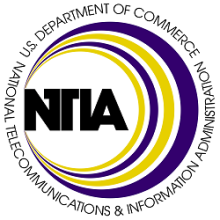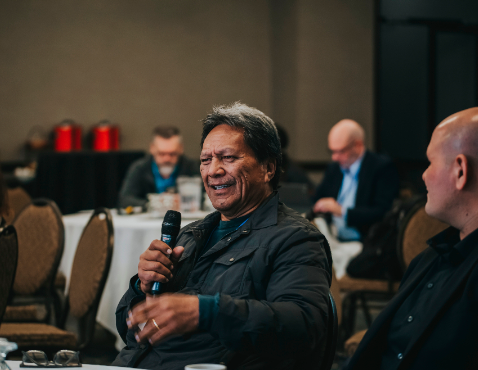
Fast, affordable Internet access for all.

As debate continues about the “collision course” between the Rural Digital Opportunity Fund (RDOF) and Broadband Equity, Access, and Deployment (BEAD) programs, it is worth highlighting the unique leverage Tribal nations have to resolve these concerns on Tribal lands as well as the challenges they may face in navigating the process.
Existing state and federal grant/loan programs are considered “enforceable commitments” under BEAD rules, making locations funded through those programs, including RDOF, ineligible for BEAD grants (unless those awards are declared to be in default). This rule prevents “duplication” of federal or state funding for broadband infrastructure build-outs.
The debate has emerged because some communities are concerned that RDOF-funded building has not yet begun and, in some cases, may never be built-out. In the meantime those locations remain ineligible for BEAD because of these enforceable commitments.
However, the rules about enforceable commitments and duplication are different on Tribal lands. When issuing its BEAD guidance, the National Telecommunications and Information Administration (NTIA) determined that federal and state grant funding for buildout on Tribal lands – like RDOF – that do not carry Tribal Government Resolutions of consent are not considered to be enforceable commitments.

Without formal Tribal consent in the form of a legally binding agreement, which includes a Tribal Government Resolution, funding programs like RDOF should have no bearing on the BEAD eligibility of locations on Tribal lands. As long as they are not currently receiving service from a provider, these locations should remain BEAD-eligible.
(The rule against double dipping does still hold for recipients of recent ReConnect or Tribal Broadband Connectivity Program awards – programs in which Tribal consent was already required. If other projects have obtained a formal Tribal Government Resolution in support, they would also still be considered enforceable commitments.)
Tribes have long raised concerns about federal and state programs that dole out funding for broadband infrastructure on their lands without consent or even consultation, leaving them beholden to an outside provider in whom they have little trust. This is especially troubling when such funding bars financial support for other, Tribally-approved or directed projects. In these cases, BEAD rules about enforceable commitments may be a helpful corrective.

Unfortunately, until a few days ago, there was little clear guidance from NTIA on how the issue of otherwise “enforceable commitments” on Tribal lands without Tribal consent would be resolved (at least in the public domain).
To find more details on how this is playing out, ILSR surveyed a selection of state challenge portals and found a patchwork of approaches that, in many cases, shifts the burden of policing this onto Tribes themselves, creating more work for Tribal broadband officials and making their participation in the BEAD challenge process even more important.
One state that seems to be going about this in a way that alleviates the burden on Tribes is Washington. The state’s broadband office has marked as under an "enforceable commitment" only those grants that went directly to Tribes, and are requiring that all other recipients submit documentation of a legally binding agreement of Tribal consent. In other words, the burden is on Internet service providers (ISPs) to prove they have an enforceable commitment backed on Tribal consent if they want to make those locations ineligible for BEAD funds.
Arizona is going in the opposite direction: assuming an enforceable commitment exists and asking Tribes to challenge the state’s BEAD map if a funding recipient does not have a Tribal Government Resolution of consent. Though the state has been clear in its desire to hear from Tribes and their commitment to processing these challenges, the responsibility lies with Tribes to ensure that BEAD’s provisions about enforceable commitments are followed.

After contacting various state offices and NTIA last month for clarification, ILSR was pointed to an NTIA fact sheet recently distributed to Tribes along with some outreach guidance. The fact sheet makes clear that, while funding Tribal locations without a “legally binding agreement” does not constitute an enforceable commitment, Tribes ”should submit a challenge if it wants that location to be deemed unserved and eligible for BEAD funding.” If they do not do so, the fact sheet goes on, “locations may be marked as ‘served’ (and ineligible for BEAD)” in error.
To put in plainly, Arizona’s policy is well in line with NTIA’s latest guidance but may not be the most beneficial approach for Tribes.
It’s an approach that shifts the responsibility back to Tribes (in a challenge process that is itself time-consuming) and risks disqualifying locations for BEAD funding that are actually not under an enforceable commitment as defined by BEAD.
It could be especially disastrous for Tribes that are looking to access this once-in-a-generation funding to build out broadband networks on their own lands or to work with a trusted partner.
Even more unfortunate is that NTIA’s clarification for Tribes comes at a time when nearly a third of the challenge processes are already concluded – with several more states closing their challenge process in such short order that Tribes in those states may struggle to respond.

On the other hand, Washington’s approach seems imminently reasonable. Presumably, if providers have obtained consent, they can easily share it with the state. And verifying that a BEAD-qualifying enforceable commitment actually exists seems as though it should fall within the purview of the state’s responsibility – in the spirit if not the letter of the funding rules.
In the absence of strong state action, the FCC does not appear to be putting much pressure on providers, either. FCC guidance to High Cost support recipients issued in November 2023 reminded states of their annual Tribal engagement responsibilities and offered a warning on BEAD.
Without Tribal consent, the agency noted, an RDOF award winner might find themselves overbuilt by another provider funded through BEAD. However, the notice says only that “if a high-cost support recipient has obtained consent [...] it should be prepared to provide documentation to the relevant state broadband office.” This guidance falls short of requiring recipients to proactively disclose a lack of enforceable commitment.
All of this means that BEAD offers a way around some funding barriers that would normally be in effect due to programs like RDOF, but that Tribes will have to be vigilant in checking on each state’s individual challenge process. It also means, perhaps, Tribes will need to contend with another time-consuming and labor-intensive lift to correct bad information on government broadband maps.
